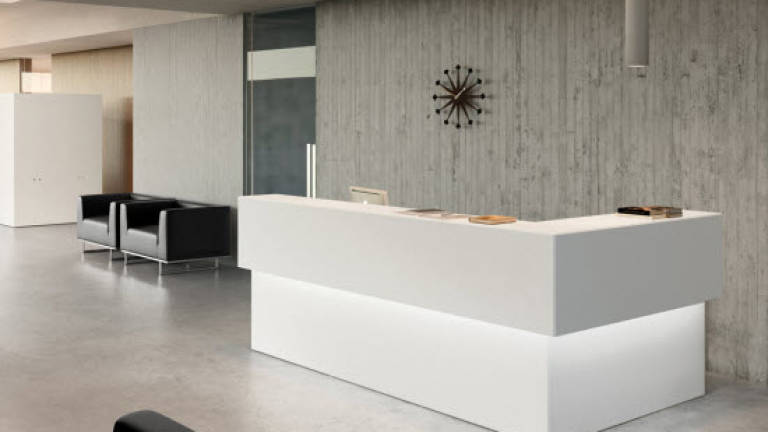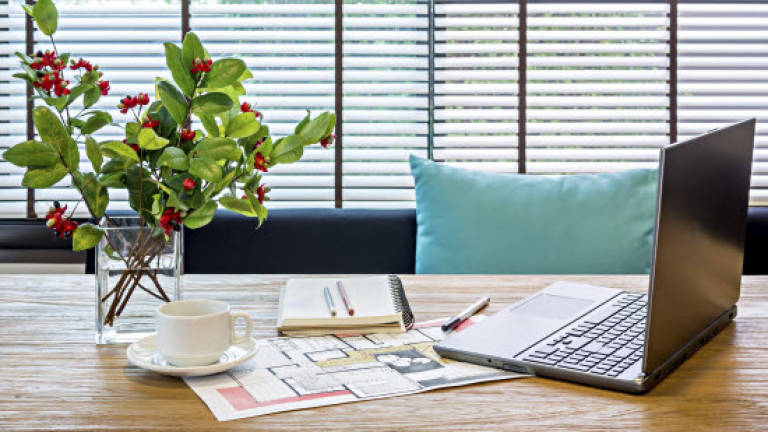Classical Feng Shui - Feng shui for the office


MANY of the feng shui rules for the home also apply to the workplace.
In this article, I will focus on those rules that apply particularly to the office, starting with the signboard.
The external signboard should be at the front of the building in a highly-visible position. It should also be hung well centred and balanced.
Also, the font size used for the letters should be prominent and readable to passersby.
Meanwhile, the internal signboard is best located behind the reception desk, and positioned such that it’s highly visible and readable to visitors and customers.
However, the reception desk should not be directly facing the door. It should be located to the side, but with a clear view of the door.
The reception desk should be backed or supported by a solid wall. There should not be a door directly behind the desk.
It is important to note that the landing of the stairs should not face the reception desk or be directly behind it.
The reception desk itself must be of a regular shape and have a balanced size. Avoid an unbalanced desk, or a slanted one, and do not wrap the desk around a pillar.
It is also favourable if the desk does not have sharp edges pointed out, but instead has curved edges.
The rooms in the office should be of regular shape – that is, square or rectangular. So too, the furniture within.
Slanted or irregular-shaped furniture may look modern and stylish but it is not favourable for an office. Also, the design should not be too homely.
The general office should be open and brightly lit. The air-conditional unit’s blower should not be located directly above the heads of the staff. Neither should it blow directly into their faces.
The office rooms within must be easy to access, with a well -defined path. Ideally, each room should have only one access door.
While full glass panels are popular, from a feng shui perspective, it is too ‘exposed’. It is better to use a half glass wall or window blinds to provide privacy.
The air-conditional unit or fan should not be directly above, or blowing onto the head of the person occupying the office.
The seat in these office rooms should be in a position that offers a good view of the outside area.
The chair should be supported by a wall behind and not a window. Ideally, it should not directly face the door or have a door behind the back.
Also the occupant of the room should not sit facing a pillar, or have a pillar directly behind him.
It is also a good idea for the room to have a window to allow natural sunlight in.
The general office layout should not be too congested either.
As a guide, staff dealing with customers such as sales, marketing, and customer service should be in the front, facing the entrance of the office. Finance and IT should be at the back.
The boss’ office should also be located at the back, and access to the boss’ room should be through the personal assistant’s or secretary’s room.
If you are in the food business, there should be access to the kitchen from the back for delivery purposes.
Computers are said to generate a weak electro-magnetic field that many believe – with long-term exposure – is detrimental to health.
Many practitioners believe that placing an indoor plant near a computer screen can help to neutralise these weak magnetic fields.
Henry Fong is an electronic engineer by qualification and he approaches feng shui with the same analytical and investigative approach he uses in his training.
Write to him at lifestyle.henryfong@thesundaily.com.